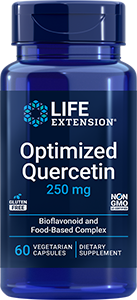
13 Uses for Citrus Peels You Need to Try
Published: January 2024
Citrus peels are known for their aromatic and flavorful qualities, yet they are often quickly discarded without another thought.
Did you know they can be utilized in various ways for your health and household? Chock-full of aromatic oils and vibrant flavors, lemon, grapefruit, lime, and orange peels have many creative uses like elevating cooking dishes, brewing homemade cleaners, flavoring candy, and more.
Need some ideas? Here are 13 citrus hacks that you need to know!
Benefits of using citrus peel
Nutritious:
Citrus peels, especially peels from lemon, are rich in antioxidants, flavonoids, vitamin C, and a type of fiber called pectin. All of these nutrients or compounds have surprising health benefits like supporting the immune system, heart health, and keeping cells healthy. Interestingly. Peels tend to contain more phenolic compounds than the edible parts of citrus fruits. Plus, peels also seem to contain more minerals than the pulp.Reduces food waste:
By upcycling the citrus fruits, you eat or juice the fruit and then repurpose the peel. You are using the whole fruit and throwing less waste away. In the US, where food waste is a huge issue, this habit can get you one step closer to prioritizing sustainability in our food system where we often discard anything left over!Aromatherapy:
The scent of citrus is delightful for many. Plus, there are documented health benefits to using this scent in your daily routine like stress management.Household uses:
In addition to the health benefits, you may also find practical uses for citrus peel like using it as a home cleaning agent or insect repellent.
13 Uses for Citrus Peels
1. Flavored water or tea
Add citrus peels to water or tea for a refreshing and flavorful twist. Lime, orange, or lemon peels can enhance the taste of plain water or create a fragrant herbal tea. Alternatively, you might enhance the flavor of beverages by adding lemon peels to cocktails, mocktails, or hot beverages like tea and mulled wine.
Classic pairings like lemon, cucumber, and mint or grapefruit and rosemary or basil can transform your beverage of choice into something fun and refreshing. In addition to the peel, you can add the juice of a lemon or lime to the water for more flavor, too.
2. Insect repellent
The strong aroma of citrus peels can act as a natural insect repellent due to the bitter compounds in the rind. Rub lemon peels on your skin or place them in areas where insects are a nuisance. If you are outside, light a candle and place the citrus peel near the flame to repel insects from a larger radius.
3. Homemade cleaning products
The natural oils in citrus peels can be used to make homemade cleaners. Soak lemon peels in white vinegar for a few weeks, strain the liquid, and use it as an all-purpose cleaner with a pleasant lemon scent. Plus, lemon peels may have properties that keep microbes at bay. In addition to vinegar, these cleaning agents work effectively to sanitize while smelling delicious.
4. Homemade limoncello
If you want to impress your company next time you're hosting, save your lemon peels and soak them in a bottle of vodka for a few weeks to make homemade limoncello. For best results, you'll want to use a potato or carrot peeler to avoid getting the pith—the white stuff—in your vodka. The pith is naturally bitter, and once soaked in alcohol, will significantly increase the final flavor.
5. Citrus extracts
If limoncello isn't your jam, but you would love to have citrus extract at home to cook with, you can make a similar use of citrus fruits. Make your own citrus extract by steeping lemon peels in alcohol (such as vodka). The resulting liquid can be used as a flavoring agent in cooking or baking. Great for lemon bars, muffins, and marinades, a little lemon extract can go a long way in your kitchen.
Citrus extracts may also pack sizeable health benefits. Supplementing with standardized citrus extracts, such as bitter orange peel, provides phenolic compounds such as quercetin. When taken in sufficient amounts, this bioflavonoid can support cardiovascular health. Additionally, research indicates that quercetin supports a healthy immune response, particularly in adapting to seasonal changes in the environment.
6. Fragrance and aromatherapy
The essential oils in citrus peels release a pleasant aroma that may even put you at ease to improve mood. Use dried lemon peels in potpourri or simmer them on the stove with other aromatic ingredients for a natural air freshener.
Aside from the pleasant smell, there may be real health benefits to citrus aromatherapy. Some research shows that patients may see benefits like supporting cognitive function and better stress management from citrus aromatherapy, according to a 2023 research study published in Geriatric Nursing.
Explore Our Best Immune Support Supplements
7. Homemade candles
Time to get crafty! Fill half a peel with melted beeswax and a wick for a homemade citrus-scented candle. Alternatively, you can do this in a jar to create less of a mess at home. Great for indoor use if you're looking for a delightful citrus scent or you could use the strategy and place it outside as an insect repellent in warmer months.
8. Citrus salt
Another upcycled use of citrus peels in the kitchen is to make citrus salt by combining lemon zest with a salt blend. By saving the leftover peel, grinding it up, and dehydrating it you can add the ground zest to a jar with salt to make your own blend to use in the kitchen.
Citrus salt can be a finishing salt on top of proteins like chicken or steak or you can include it as an ingredient in marinade or salad dressings to add a delicious, fresh citrus flavor.
9. Candied peels
Create a sweet treat by candying citrus peels. Boil lemon peels in a sugar syrup, then let them dry and coat them in sugar for a delicious, chewy snack or dessert topping. Store them in an air-tight jar on the counter.
10. Garbage disposal air freshener
Citrus peels do not disintegrate in the garbage disposal, but in the process of running the disposal, you will release essential oils that both clean the innards of your sink and release an odor-blocking, lemon peel aroma.
11. Food or beverage garnish
The outer colored part of citrus peels, known as the zest, not only contains concentrated essential oils but also adds a burst of flavor to both sweet and savory dishes. Grate or peel the outer layer to create lemon zest, and add it to marinades, salads, desserts, and sauces.
12. Citrus butter or oil
Infuse oil with citrus peels to create flavored oils for cooking. This is especially popular with olive oil, providing a lemon peel kick to salads and dishes. You can do this by infusing the oil with the citrus peel or grating zest and mashing it into butter. Store the oil in a sealed jar out of direct sunlight for long-term storage.
13. Composting nutrient material
Citrus peels are rich in nutrients and can be added to compost bins to enhance the nutrient content of the compost. Lemon peels contain fiber, antioxidants, bitter compounds, and organic and acidic material that can be nourishing to composting bins.
Are Citrus Peels Rich in Vitamin C?
Indeed, citrus peels are rich in vitamin C, clocking in at 9 percent of the daily value of vitamin C per tablespoon serving, according to the USDA. However, the type of citrus matters here. For example, lemon and orange peel have differing levels of vitamin C.
You can receive vitamin C from a variety of foods, including citrus fruits—lemon, lime, grapefruit, and oranges—as well as other foods like bell pepper, broccoli, and tomatoes. D-limonene, the compound responsible for the distinct aroma of lemon, is also present in the peel and is believed to be associated with various health benefits, including immune support.
Health benefits of vitamin C
Whether you're getting your vitamin C from lemon peels or other sources, the health benefits are impressive. Vitamin C has been well-documented to support our immune system, skin health, and heart health. Vitamin C may also promote cellular health and healthy aging.
Immune health
Most notably, vitamin C is useful in supporting our immune system, which is especially important during times of the year then we could use some additional support.
Skin health
Vitamin C has been shown to support the production of collagen, showing great benefits for skin health and regeneration. Vitamin C is commonly used in combination with enough protein in the diet to support skin renewal over time.
Heart health
The nutrients found in citrus peels, such as vitamin C, quercetin, pectin fiber, and other phenolic compounds, may help promote heart health by supporting already healthy blood pressure and cholesterol levels.
Cellular health
Rich in antioxidants including vitamin C and d-limonene, lemon peels may help support our cells by neutralizing free radicals in your body so that you can stay healthy for the long haul. Free radicals are molecules that may be harmful; antioxidants found in citrus peels might work to neutralize these and remove them from the body.
About the Author: With over 10 years of experience in nutrition, Caroline Thomason is a media dietitian in the greater Washington, DC area. As a dietitian, she is the best at breaking down science-based information in an easy-to-digest way for consumers and healthcare professionals alike. In her private practice, she works with women who want to stop dieting and find confidence with food.
References
- Huang H, et al. "Effect of quercetin supplementation on plasma lipid profiles, blood pressure, and glucose levels: a systematic review and meta-analysis." Nutrition Reviews. January 2020. https://academic.oup.com/nutritionreviews/article/78/8/615/5697189
- Jimbo D, et al. "Effect of aromatherapy on patients with Alzheimer's disease." Psychogeriatrics. December 2009. https://pubmed.ncbi.nlm.nih.gov/20377818/
- Lehrner J, et al. "Ambient odors of orange and lavender reduce anxiety and improve mood in a dental office." Physiol Behav. September 2005. https://pubmed.ncbi.nlm.nih.gov/16095639/
- Singh B, et al. "Phenolic composition, antioxidant potential and health benefits of citrus peel." Food Res Int. June 2020. https://pubmed.ncbi.nlm.nih.gov/32331689/
- Ting Y-Y, et al. "Effects of aromatherapy on agitation in patients with dementia in the community: A quasi-experimental study." Geriatric Nursing. May-June 2023. https://www.sciencedirect.com/science/article/abs/pii/S0197457223001040
- "Lemon peel, raw." U.S. Department of Agriculture. April 2019. https://fdc.nal.usda.gov/fdc-app.html#/food-details/167749/nutrients










